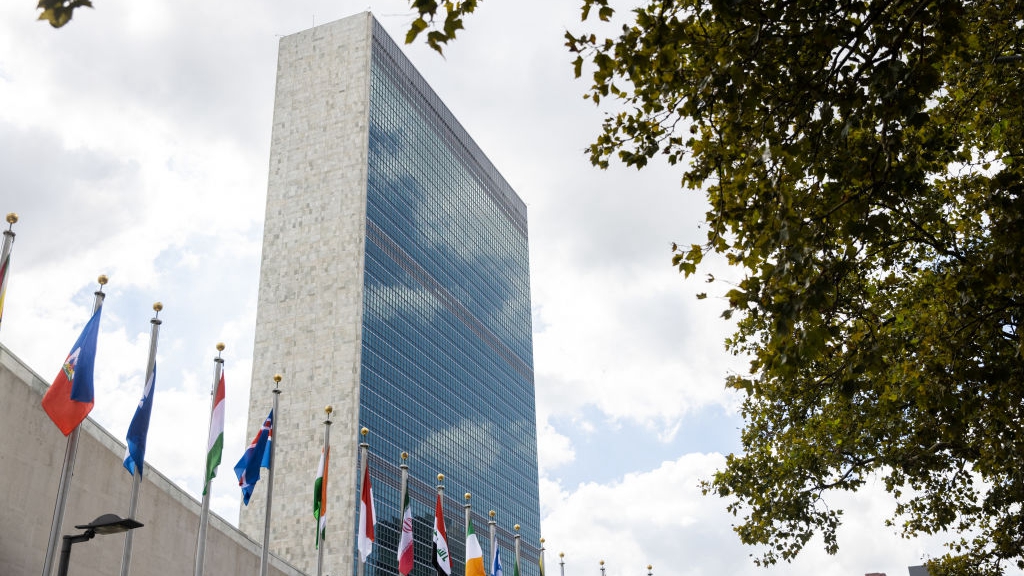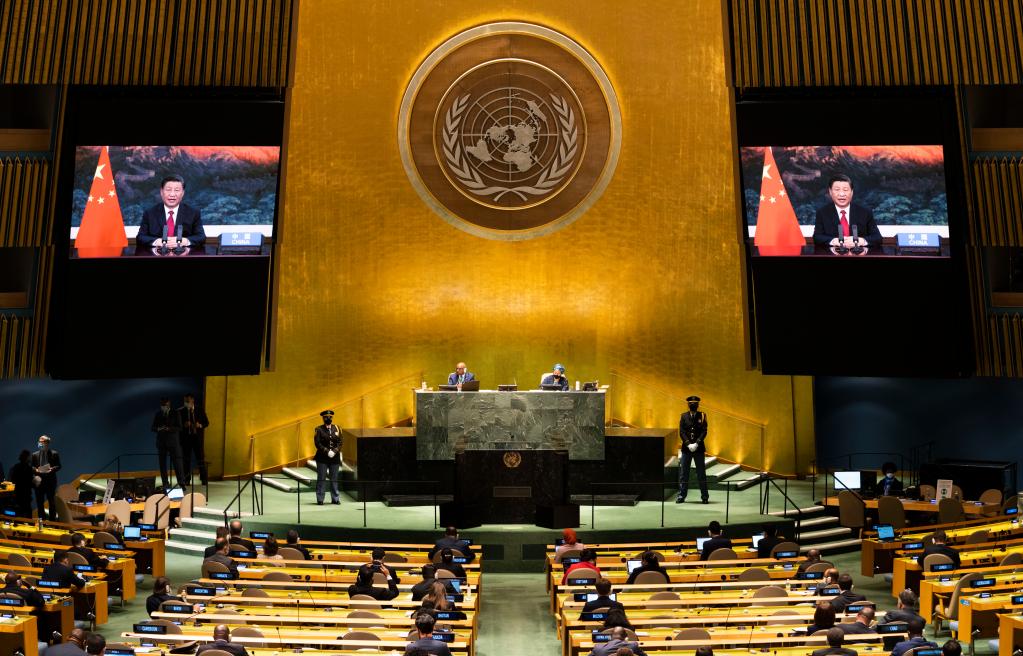
International flags outside the UN headquarters in New York, U.S., September 20, 2021. /Getty
International flags outside the UN headquarters in New York, U.S., September 20, 2021. /Getty
Editor's note: John Gong is a professor at the University of International Business and Economics and a research fellow at the Academy of China Open Economy Studies at UIBE. The article reflects the author's views and not necessarily those of CGTN.
On September 21, Chinese President Xi Jinping and U.S. President Joe Biden each delivered a speech within a few hours apart at the general debate of the 76th session of the United Nations General Assembly (UNGA). Biden's speech was a bit longer, covering a range of issues, while Xi's speech focused on China's position with respect to the more near-term issues of combating the COVID-19 pandemic and the subsequent economic recovery.
It would be an interesting exercise to look at the relevant parts of their speeches for comparison purposes.
Towards the end of President Xi's speech, he said the world should accommodate different forms of civilization and multiple paths to modernization. Democracy is not a special right reserved to an individual country, and democracy-building via military means leads to disaster, as evidenced by recent events.
Xi said it is not uncommon to see countries having differences and disagreements. The way to resolve them is through dialogue and cooperation based on equality and mutual respect. One country's success doesn't imply the failure of another. The world is large enough to accommodate the joint growth and progress of multiple countries. He then went on to say China never bullied or invaded other countries in the past and will not do that in the future. China has no intention to seek world hegemony.

Chinese President Xi Jinping addresses the general debate of the 76th session of the UN General Assembly via video link, September 21, 2021. /Xinhua
Chinese President Xi Jinping addresses the general debate of the 76th session of the UN General Assembly via video link, September 21, 2021. /Xinhua
The keywords of the Chinese President's obviously are dialogue and cooperation. Now, let's look at what Biden has to say about its relations with China. The following paragraph is most relevant in my view:
"All the major powers of the world have a duty, in my view, to carefully manage their relationships; so they do not tip from responsible competition to conflict. The United States will compete and will compete vigorously and lead with our values and our strength … But we're not seeking - I'll say it again - we are not seeking a new cold war or a world divided into rigid blocs. The United States is ready to work with any nation that steps up and pursues peaceful resolution to shared challenges, even if we have intense disagreements in other areas ..."
The words "compete" and "competition" appeared three times in this short paragraph. So here comes the major difference between the two countries in terms of their respective perceptions and positions regarding the bilateral relationship between them.
While China hopes for a cooperative relationship while seeking to resolve differences and disagreements via dialogue, the United States sees it mostly as a competitive relationship, which naturally entails the existence of two adversary sides or rivals, although there are still areas of cooperation, such as COVID-19, climate control and nuclear nonproliferation - as Biden alluded to in the speech.
However, there are also points that are worth noticing in Biden's messages. First, he introduced the concept of "responsible competition" as the opposite end of "conflict." It's hoped that "conflict" could also cover "confrontation" - a concept that Secretary of State Antony Blinken has referred to in several previous Sino-U.S. relations statements known as the "3C" strategy: compete, collaborate and confront.
Second, as Biden emphasized twice - that the United States explicitly committed to not seeking a cold war or a world divided into rigid blocs. The exact meaning of that certainly still waits to see future actions from Washington. But in any case, does that mean Washington is not going to develop cold-war-like alliances targeting a particular country?
NATO is a Cold War legacy that probably can be argued as not pertaining to this debate. But actions like establishing the Quad (consisting of the U.S., the UK, Japan and India) and the more recently announced AUKUS (the U.S., the UK and Australia) in the Indo-Pacific region certainly raise doubts about Washington's sincerity regarding that "no cold war" statement, even though both Quad and AUKUS are still not purely security and defense alliances.
(If you want to contribute and have specific expertise, please contact us at opinions@cgtn.com.)

